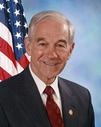|
Digital News Report – Tightening in job markets, prices that fluctuate, costs of living out pacing stagnant wages and a general sense that some impending hardship is headed for our homes and neighborhoods are concerns that are frequently blamed on “the economy”.
How can something with nothing more than a name cause so much turmoil for so many people? What is “the economy” and is there anything that can be done to make it less threatening to our lives and property? If we truly have a free market economy, then why are jobs hard to find? Why aren’t prices subject to negotiation? Why do people face limits on how they use their property and abilities to provide for their basic needs? If, as so many are finding out, work is so important to “the economy”, then why are American manufacturers moving their factories to other countries? Why are our wages taxed? Why are there so many laws regulating who can or cannot have jobs and how people are to interact at the workplace?
Various influences are beginning to combine to bring new focus to unheralded analyses of “the economy”. Shock and indignation over the ever growing federal debt and its consequences to the value of our assets, labor, and future are inspiring political movements that demand government spending come under control. The open access of the Internet is fueling these concerns as economic ideas that have been relegated to margins away from the mainstream are being studied and accepted by a growing number of voters—especially among the young.
People who are becoming cynical over how “the economy” is being managed are, at increasing frequency, taking public stands to express their disdain. During the weekend of March 20, thousands of tax protesters showed up in Washington, D.C., to show their opposition to the Congressional plan to manage the delivery of medical services (the term “health care system” will not be used by this writer). This came closely on the heels of Texas Representative Ron Paul’s surprise victory in the Conservative Political Action Conference straw poll this past February.
Rep. Paul, though holding office as a Republican, is ideologically and economically a libertarian. He brought national attention to his economic cause through the presidential primaries of 2008. He set himself apart from his GOP primary opponents by stating unrepentant opposition to America’s military actions in Iraq, Afghanistan, and Pakistan and calling for the dismantling of American military bases and occupation around the world. He took his position based upon constitutional limits against the way the military is used as well as the heavy burden America’s global military presences is putting on America’s taxpayers and economic system.
In 2009 Rep. Paul published End the Fed wherein he advocates dismantling the Federal Reserve System, returning US currency to the gold standard, and eliminating federal programs that fall outside constitutional limits. The book was published in conjunction with his bill to audit the Federal Reserve Bank which, with the Treasury Department, has been increasing the money supply to fund programs that cost more than the revenues that are gathered through taxes.
Rep. Paul, though he stands nearly alone in Washington for restoring the value of currency and restricting the power of government, is standing on principles that have a long heritage and great intellectual support outside of institutionalized government and education and corporate business structures. He is promoting a view of economics known as the Austrian School which dates back to the 15th century and St. Thomas Aquinas. This is an approach to economics that embraces individual liberty so as people participating in markets can set value with labor, barter, or mutually accepted currency. Austrians consider the only role of government to be for the protection of property rights and of liberty for people to establish their purposes in the market.
To paraphrase Thomas Jefferson, Austrians, such as Rep. Paul, if given the choice of government and no markets or markets and no government, would choose the latter. In the meantime American government, even despite its ever growing debt problem, continues to enact costly programs that increases its power over the most routine daily decisions.
As an increasing number of people are negatively affected by political and governing decisions that have economic consequences Austrians, such as Rep. Paul will be heard and considered more seriously. What is left to be determined is how government will respond to those who want to limit its scope and influence and vice versa.
By: Bob Strodtbeck has been writing editorial commentaries since 1993. He has professional experiences in pharmaceuticals, radio, and education. He has also served as a church elder in an Orlando congregation where he has made his home since 1986.

